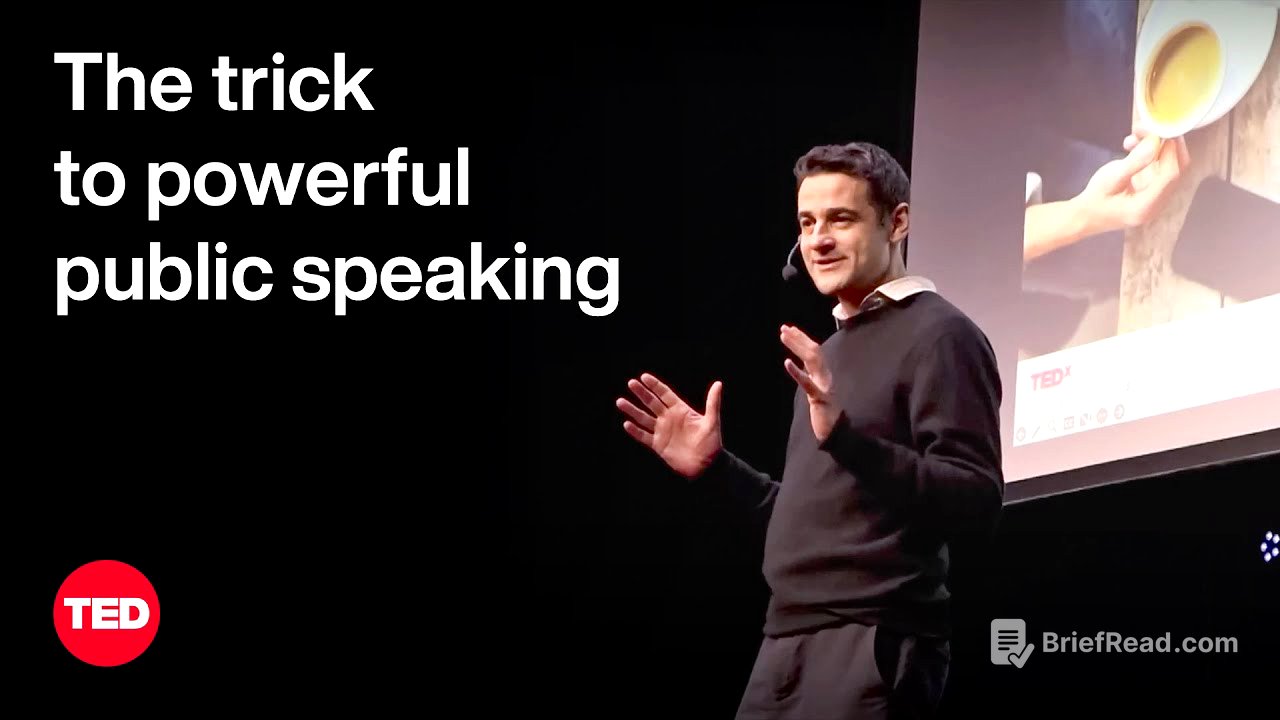TLDR;
The speaker emphasizes the importance of approaching public speaking with the same naturalness and connection one would have in a casual conversation over coffee. By focusing on the audience's needs, telling relatable stories, and prioritizing the key message, speakers can overcome anxiety and engage their listeners more effectively. The core idea is to prioritize content and connection over rigid formality, making presentations more impactful and memorable.
- Approach public speaking like a casual coffee shop conversation.
- Focus on audience needs and relevance.
- Use storytelling to connect emotionally.
- Prioritize the key message early.
- Overcome anxiety by focusing on content and connection.
Introduction [0:04]
The speaker begins by reflecting on the pressure of "going well" during a presentation, acknowledging common fears such as forgetting points, facing ridicule, or losing the audience's attention. He sets a modest goal of having the audience remember one key takeaway: to approach public speaking as if they were having a casual conversation over coffee. He notes that in today's busy world, it's challenging to make a lasting impression, and nervousness often leads speakers to behave unnaturally, triggering the fight or flight response.
The Coffee Shop Test [3:02]
The speaker introduces the concept of the "coffee shop test," illustrating how people communicate naturally and engagingly in casual settings. He contrasts this with the stilted, formal language often adopted in professional or high-pressure situations. To highlight this point, he shares two anecdotes: one about a head of HR who, despite being charismatic in person, spoke in corporate jargon when asked to present, and another about an engineer who failed to convey the life-saving importance of a footbridge due to an overly technical presentation.
The Power of Storytelling [9:33]
The speaker emphasizes the importance of appealing to the human side by being relevant and charismatic, just as one would in a coffee shop conversation. Storytelling is presented as a powerful tool to bring even the most complicated subjects to life, referencing the Post Office scandal in the UK as an example of how a TV show focusing on personal stories led to significant action and public awareness. While detail is important, introducing a subject in a relatable way, as if describing it to a friend, can hook the audience and maintain their attention.
Key Message and Benefits [11:55]
The speaker uses a personal anecdote about a visit to the GP to illustrate the importance of explaining the benefits before diving into technical details. He argues that public speakers often waste time worrying about the symptoms of anxiety, such as shaking or rapid breathing, instead of focusing on their content. The key message is that content is the "antihistamine" for public speaking anxiety. By talking to an audience as one would talk to a friend, speakers can unlock their natural charisma and energy, making them more relaxed, confident, and engaging.









